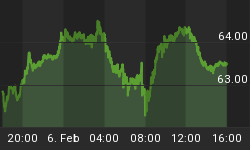While the "stock market" continues to flirt with new records, there's turmoil under the surface. High-flying social media companies Twitter and LinkedIn fell hard in late April, and now recent IPO Etsy, an online marketplace for arts and crafts, is down 50% since going public (8% of that today).

Bull markets don't end all at once. Generally a few egregiously-overvalued sectors blow up first and are dismissed by most observers as aberrations. Instead, they turn out to be a sign of things to come.
In the previous decade's bubble it was subprime housing that led the way, while being initially characterized by experts as too small to matter. Click here for Ben Bernanke's ongoing attempts to convince the world to relax and ignore housing's problems.
This time around we of course won't know until after the fact which sector is the canary in the coal mine. But these epic fails in the bubbly social media/online marketplace region of tech certainly look like viable candidates.
So...why these companies at this time?
- They are stock issuers rather than buyers. That is, they don't have the ability or inclination to borrow huge amounts of money to buy back their own stock, as can, say, IBM or Apple. So their valuation is left to actual market forces to determine, and being priced for perfection, anything less than that leads to a quick, brutal revaluation.
- The network effect may not be as powerful a force in these markets as some believe. In a nutshell, the network effect is the tendency of an online company's value to rise along with its customer base. The more people who use Facebook, for instance, the more powerful and valuable it becomes for prospective new users. So the strong tend to get stronger. But that may not be the case in a world where everything is mobile and new smartphone apps are launching on a daily basis. Kids tend to flee their parents, so mainstream acceptance of an online service can be the kiss of death. Which means such companies have a very limited lifespan.
- Why now? Corporate revenues are falling. Due to share repurchases this negative trend hasn't translated into falling earnings per share, but it's just a matter of time. As more and more investors get this, their mood shifts from euphoria to caution. Cautious people tend to shy away from speculative situations, and tech trading at huge multiples of revenue certainly qualifies.
- Who's next? Well, Uber is looking pretty rich. See Uber is now valued higher than 80% of the S&P 500, closing in on GM and Ford
So that's the tech tank story. Now we'll see whether it becomes the story of the market in general.















